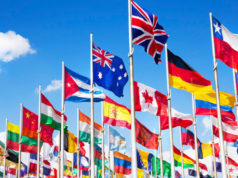Ayaz Ahmed
If Balochistan had not been faced with rampant corruption, the resource-rich province would have been more developed, advanced and prosperous than Dubai, Singapore, Japan and Hong Kong. The deeply-seated culture of loot and plunder has made the province politically fragile, economically poor, educationally backward, socially divided, susceptible to regional exploitation and unsafe on the security front.
According to the Transparency International (TI), all three organs of Balochistan’s government i.e. the legislature, the executive and the judiciary are amongst the most corrupt departmnents of the provincial government. Apart from this, the police and education sectors are also ominously plagued by widespread corruption in the province.
It is a widely accepted definition of corruption that whenever a public office-bearer misuses his authority to promote his personal or sectional interests, he is considered to have committed an act of corruption. After taking this definition into consideration, it can safely be said that Balochistan is gripped by political, economic, social, educational and religious corruption.
As far political corruption, it begins when a political party gives party ticket to an incompetent, corrupt and influential person. Almost all political parties of Balochistan are involved in this act. The mainstream political parties of the province are stringently controlled by dynastic and hereditary leaders. Intra-party elections for nominating the most competent member as party head are a distant dream. Other orgies of political corruption include provincial lawmakers’ support to criminals, terrorists, militants, and extremist; unresponsive behaviour to the public needs and tribulations; lack of interests to attend assembly sessions and politicization of public offices for political gains.
Corruption in the economic sector is also rife in Balochistan. Most of the politicians and bureaucrats are involved in amassing millions of rupees from the depleting provincial purse and resources by various means. Today, the hefty development funds afforded to each provincial minister end up being misappropriated and misused to promote party interests. A large number of office-bearers have deposited millions of black and looted public money in national and international banks. Due to rampant economic corruption, industrialisation has became a distant dream for Balochistan. Moreover, the unchecked corrupt practices of the government has created poverty, joblessness and economic insecurity in the province. The monster of economic corruption has made more than 30 percent of the people jobless and over 52 percent extremely poor .
The sector of education is also one of the most corrupt in the province. It begins when the provincial government continues to systematically avoid implementing the Article 25 (A) of the 1973 Constitution that makes it incumbent on the province to provide free and compulsory education to all children aged between 5 and 16. The recently-increased budgetary allocation of around 26 percent of the total budget to the education sector is largely misappropriated and goes in waste owing to inherent corruption in the neglected sector. The students have to give bribes for admission and good marks in the final examinations in some public sector universities. A large number of teachers are political appointees who only receive the salary.
The torpid judicial system of Balochistan does not function without give and take. The dispensation of justice is not only quite expensive, but also elusive for the poor. From a lawyer to a judge, most of them take immense bribes to give the verdict in favour of criminals, terrorists, feudal lords and politicians. Due to the politicized, costly and frightening judicial system, a common person can not afford and does not trust the judiciary. As a result, the underprivileged and the poor are suffering from injustices.
The provincial bureaucratic system is also notorious for corrupt practices. The politicized bureaucracy in collusion with politicians divert public money and resources for personal and sectional use. After retirement, a large number of provincial bureaucrats become landlords, shareholders in multinational companies and millionaires. The rampant misuse of power by the civil administrators has compelled the people to expect nothing from the administration of the province.
The specter of corruption has also adversly affected Balochistan’s religious sector. In many educational institutions, teachers of religious subjects teach Islamiat compulsory and Islamic history subjects in an imperfect way. Since they themselves are oblivious of the true Islamic teachings, they misguide students about basics of Islam. Most pulpits of mosques are used to indoctrinate followers of one sect against another with impunity. A large number of seminaries controlled by some religio-political figures prepare poor students for misguided jihadist purposes against the state. Such misuse of authority by religious persons is the most dangerous form of corruption in the province.
However, NAB, under the leadership of Qamar Zaman Chaudhry, has tightened the noose around some influential politicians, bureaucrats in the country in particular and in Balochistan in general with a view to extracting the looted public money. The Bureau successfully recovered Rs. 4.5 billion of the looted money in 2015. Nevertheless, the incumbent PML-N both at the center at provincial levels seems non-serious to take the matter of corruption seriously. If such lethargic and indifferent response of the government continues, the province would continue to suffer more in all sectors.
The daunting challenge before the incumbent provincial government is to create a pragmatic political will calculated to grasp the specter of corruption in its all forms and manifestations. Equally important, the legislative, the executive and the judicial bodies tasked with making, executing and interpreting these much-needed laws are beset with myriad corruption. Also, the people in Balochistan are not vigilant against the ever-increasing corrupt practices, which are the order of the day. If the provincial government earnestly wishes to eliminate corruption, it should reform the obstructive politics, promote quality education, and make the judiciary and all administrative and bureaucratic departments efficient, responsible, accountable, result-oriented and depoliticized.
Share your comments!








